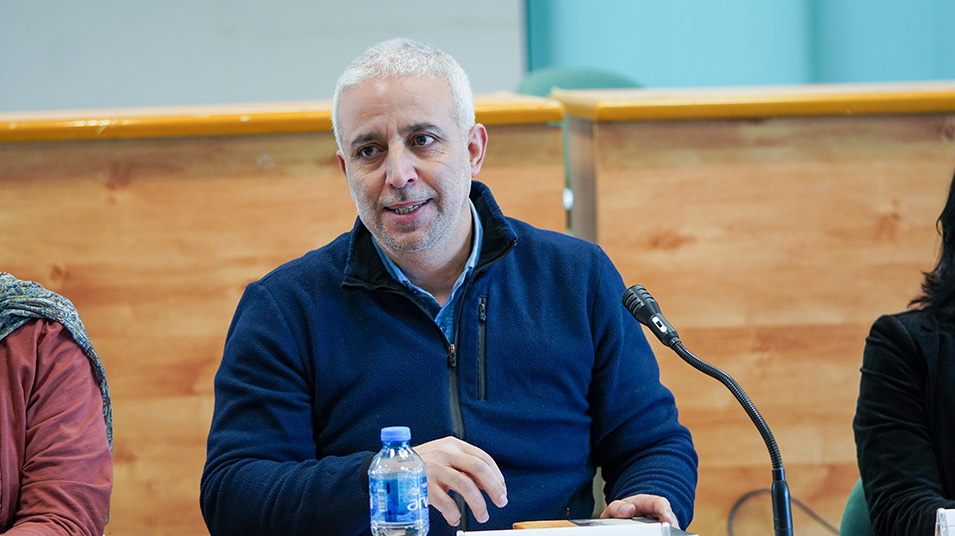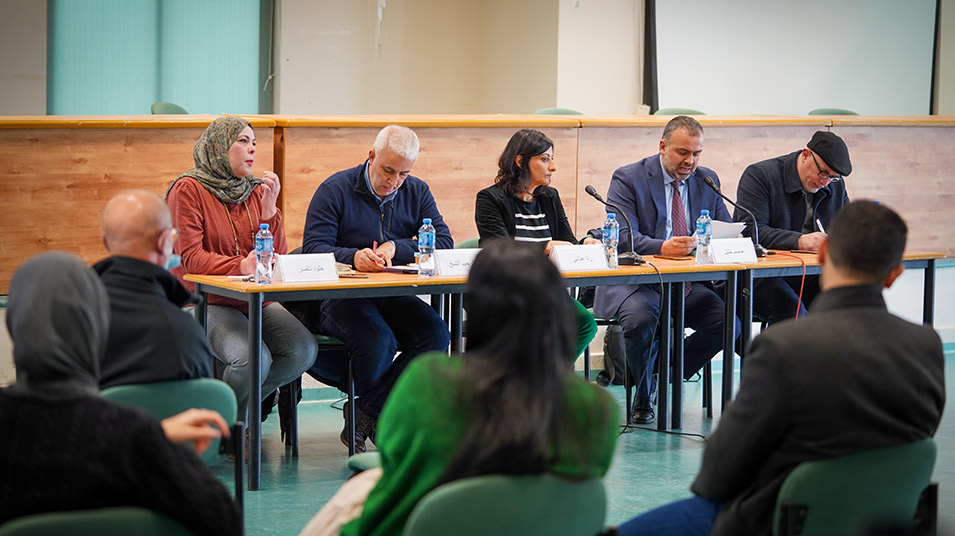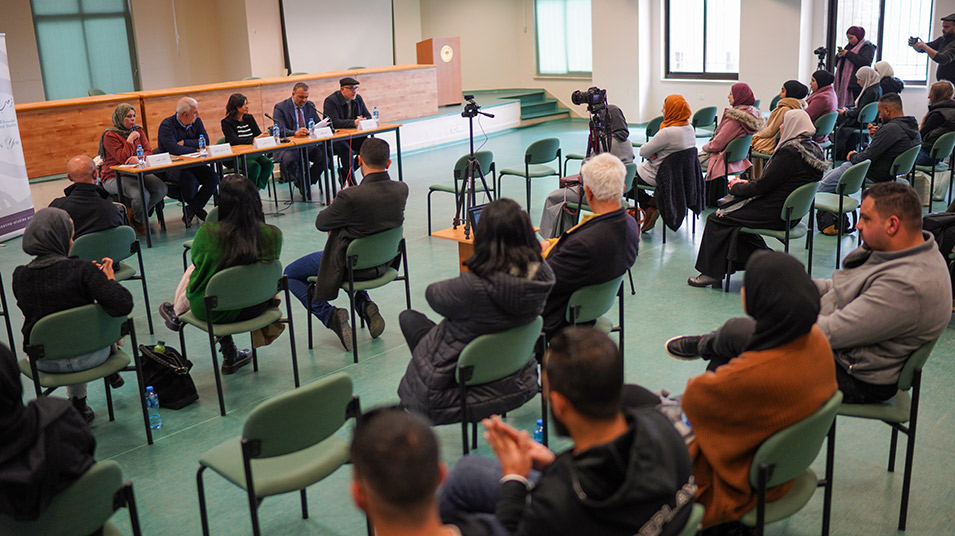Birzeit Ph.D. candidates present novel views on modern Palestine, national identity in newly released edited volume
Palestinian historians and social scientists celebrated the launch of “Conceptualizing Modern Palestine: Exemplars of Liberating Knowledge,” a collection of academic articles by Birzeit University Ph.D. candidates on Palestinian national identity, in an event organized by the university’s Ph.D. Program in Social Sciences and the Institute for Palestine Studies.
Held on March 22, 2022, on the university’s campus, the book launch saw Dr. Abdulrahim Al Shaikh, a professor of philosophy and cultural studies at Birzeit University who supervised and compiled the articles in the volume, discuss how each of the seven chapters presents a new way of viewing, and understanding, Palestine through novel applications of methodologies adapted from diverse fields such as postcolonial studies, indigenous studies and militant research.
The seven chapters were written by seven Ph.D. candidates enrolled in the university’s Ph.D. Program in Social Sciences: Fayruz Salem, Khouloud Nasser, Ashraf Bader, Qasam al-Haj, Ali Musa, Asma’ al-Sharbati and Abd al-Jawad Omar. Each chapter focuses on one aspect through which modern Palestine can be understood despite, and because of, its splintered geography and rich, vibrant culture.
Al Shaikh was joined by Dr. Asem Khalil, dean of the Faculty of Graduate Studies at Birzeit University; Rana Anani, editor of the Institute for Palestine Studies’ website; and Ashraf Bader and Khouloud Nasser, who each authored a chapter in the volume.
Anani, who moderated the panel discussion accompanying the book launch, noted that the collection of articles is the result of a longstanding academic partnership between Birzeit University and the Institute for Palestine Studies.
Uniquely, Anani explained, the book’s chapters examine Palestine through original case studies characterized by novelty in the choice of methodology and the application thereof. While the various chapters differ in how they present modern Palestine, she added, they critically converge around two main areas: “the ideological persistence of the Zionist settler colonial project” and the shifts in the Palestinian national liberation project that occurred on the political, social and cultural levels.
Discussing the significance of the book, Khalil noted that it presents views on Palestine from within. “This time,” he said, “the answers come from Palestine. The book tells the Palestinian narrative, with Palestinian pens” Khalil also lauded the methodologies used within the book, explaining that the authors used inter-disciplinary approaches that neatly combined concepts and frameworks from interrelated fields, pushing forward knowledge production, teaching, and learning locally, regionally, and internationally.









